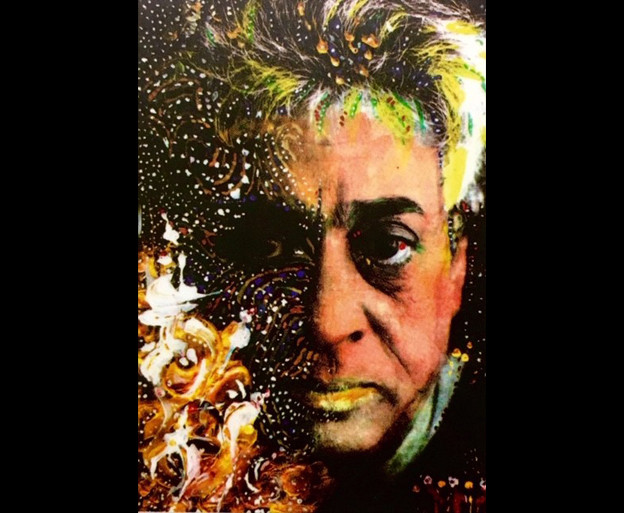Salim Barakat: poetry as linguistic transgression

Salim Barakat is a Kurdish-Syrian poet and novelist, born in 1951 in Qamishli, an ethnically, religiously, and linguistically diverse city in northern Syria. He lived in exile for years before settling in Sweden where he has resided since 1999. He has thus far published over forty-six works of poetry and prose, including three autobiographies, a memoir of wartime, and several children’s books. He enjoys a peculiar celebrity and following in the Arab world, among critics, scholars, and other poets. They are in awe of his language and are fascinated by his personality but few of his admirers can claim to “enjoy” or “relate” to his work.
Barakat achieves the “poetic,” both in his poetry and prose, through a deliberate occlusion of meaning behind the veil of language; language intentionally textured and thickened beyond recognition. We are always at the cusp of understanding, exceedingly conscious of ourselves not as readers/speakers of Arabic but as explorers of what has thus far eluded us.
His “difficult” relationship with the Arabic language is often tied to what critics have called “Kurdish themes.” He insists on presenting himself as a Kurd who writes in Arabic. He is always seeking to expel our familiarity with the language we think we know and to disrupt our learned methods of arriving at meaning.
Barakat’s poetry is a confrontation between “language” and “meaning.” Meaning is vision; it is an organizing of language into a coherent finality, and language in Barakat’s poetry is a resistance of precisely that.
In the following poem aptly titled “Revenge,” Barakat invites us to look for confrontations. The poem includes a vocabulary list through which Barakat performs his idea of language as disruption or avoidance of meaning.
Revenge
a.
The coats are all there,
the winds all there,
footprints deep in the snow all there,
the lamps, houses, last apparitions, all there.
So gather in your tame hands all that they can hold of perfection
and strive so that the scene may be a tamed echo.
b.
An unease, like morning, preoccupies those approaching my end, and I — struggling under a great net — hang place — like a prisoner’s pants — on the line, that delicate line, running from the origin of comedy to your moaning.
An unease, like morning, preoccupies those approaching my end, and I — struggling under a great net — hang place — like a prisoner’s pants — on the line, that delicate line, running from the origin of comedy to your moaning.
c.
The abundance of naught is I and will is my suspicion.
The abundance of naught is I and will is my suspicion.
d.
Rage is the sign of night and water a thought ahead of its own completion.
e.
Like a shoe polished,
like a nickel doorknob,
thus is your scream.
Vocabulary:
Day: anger masked in air
Wind: the steps of a word toward its secret
Sound: the ruin of form
Longing: gold scattered on the velvet of the end
Space: the shaper of light
Nothingness: the humor of shadows languishing in their seats
Writing: violence testing the forgotten
Number: the yield of futility
Fruit: the tree’s proof of a past that eludes all proofs
Mask: the moaning of the manifest
Distance: repeated panting
Certainty: a murmuring on the other side
Resurrection: a childhood confirming reason
Gold: a bar fight
Life: a golden bullet
As for you, dweller in endings, don’t wander too long, lest dinner get cold.
(translated by Huda Fakhreddine and Jayson Iwen from By the Same Traps, By the Foxes Riding the Wind, 1983)
Arabic Modernism's Other Tradition